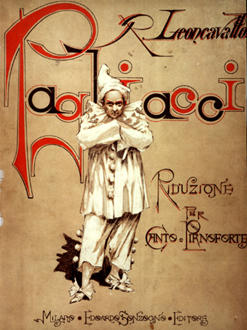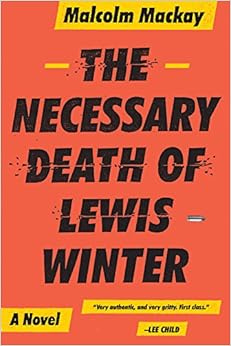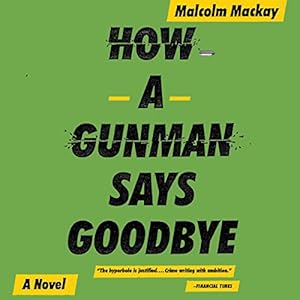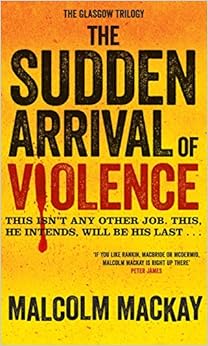As promised in my last piece, here's the conclusion of "Mariel" (Originally published in Ellery Queen Mystery Magazine's December 2012 issue):
Mariel
That night, as Mariel lay awake in her bed, she contemplated her efforts to date at exposing Ripper’s murderer and was bitterly disappointed with the results. Though occasionally blessed with flashes of innovative vigor, her intellectual resources had been sorely taxed by the whole affair. She stared blankly out of her curtain-less window and thought of almost nothing.
The backyard was bathed in the cold illumination of a full moon that created black and white etchings of once-familiar objects. Ripper’s empty chain-link pen was captured near-center frame of her nocturnal reverie, its gate standing forlornly open, forever awaiting his impossible return. A spill of shadow ran like blood from the dog house and onto the brilliant concrete pad it rested upon.
Mariel felt her eye lids grow heavy, while above her the ponderous footsteps of her mother measured the distance from her bathroom to her bed. This was followed by a groaning of bedsprings and a loud yawn; then silence descended over the household. Outside, something glided soundlessly from out of a tree, only to vanish within the greater shadows of the forest. Mariel’s eyes began to close.
As she was drifting off, she saw something moving stealthily along the darkened tree line that formed the natural boundary of her yard. As she was often a nocturnal traveler herself, this did not, at first, alarm her. Mariel had spent many a night prowling Crumpler Lane midnight forays and cool boldness had become something of a neighborhood legend.
This had been several years before however, shortly after the loud divorce of her parents and the twaining of her family into a Mother-Daughter/Father-Sons arrangement. Mariel had hoped that she would discover that her brothers were simply sleeping over at some neighbors’ house but never seemed able to catch them at it. When the state’s child services were brought in, her mother took drastic action and placed a latch on Mariel’s bedroom door.
She watched dreamily as the figure detached itself from the shadows and emerged, glowing, into the moonlight. The man looked familiar, but the bright, ghostly light only served to erase his features. He glided across the littered lawn of her back yard in a direct line with her bedroom window and a small, shrill alarm began to sound in Mariel’s head. She struggled to come fully awake and sit up.
The man disappeared from view as he reached the wall of her house and for the first time sound entered into the hushed scene. Mariel heard the scrape of something metal and remembered the rusty ladder that lay beneath her window. She had not needed that ladder since her mother ceased locking her in at night and it had lain, discarded and forgotten, until now, in the rank grasses of her backyard. It was this sound that set her in motion.
Sitting up, fully awake now, she slid noiselessly from her bed and began stuffing her pillows beneath her blankets. Once done, she dropped to her hands and knees and began to crawl to the closed bedroom door. It had been some time since her mom had locked her in and she hoped that she had not done so this night.
Behind her a head rose cautiously within the frame of the window. Mariel froze as soon as she saw its elongated shadow begin to crawl up the opposite wall, then, ever so slowly, lowered herself into the welter of dirty clothes and discarded dolls and toys that formed the tangled landscape of her room. She sank from sight within the camouflage of her own environment.
Peering out from beneath a damp towel that she draped over her head, Mariel saw the silhouette swivel slightly; then focus on the lumpy bed revealed in the moonlight. For several moments the scene remained frozen in this attitude. Then the window began to squeak like the tiniest of mice.
Mariel knew that she could call out to her mother and perhaps, if she had not had too much to drink, awaken her to the peril she faced. But this was not part of Mariel’s rapidly forming plan.
Instead, she snaked an arm upwards for the doorknob. With any luck she could ease herself out into the hallway as the intruder made his way into her room, then…use the latch that she, herself, had been confined with so many times before. As for the window, she had simply to race around to the back of the house, tip the ladder over and he was caught like a rat! Then, and only then, she would yell bloody murder! Wouldn’t everyone be surprised at what she had accomplished? Mariel began to grin beneath her covering.
She found the doorknob and began to turn it. From behind her came the hiss of clothing sliding over the window sill followed by a soft thump. Things were happening a little faster than she had planned and so she tried to hurry a bit more. She could hear her own breathing as she slithered into the opening she was making.
Then Sailor began to hiss and yowl, only just now deciding that this stranger in his room was not welcomed. Mariel looked back over her shoulder, she had completely forgotten Sailor.
The cat had been a gift to her mother from a former boyfriend who had worked on a clamming boat, hence the name, ‘Sailor’. Naturally, he took up with the one member of the household that cared nothing for him—however, Mariel was not above putting him to good use.
Without a word, she sprang to her feet and snatched the fat, orange cat from the nest he had created within her bed coverings. With a screech of protest he was suddenly airborne in the direction of Mariel’s would-be assailant, his claws fully extended in a futile attempt at air-braking.
When the two met, it was the nocturnal visitor’s turn to vocalize, as he screamed like a woman in labor, whether from pain or terror, Mariel could not know. From above there was a great concussion as her mother’s considerable bulk was set suddenly in motion.
Mariel, consigning Sailor to whatever fate awaited him, flew for the door once more, slamming it behind her and latching it all in one movement. A tight smile appeared on her chubby face as she raced for the back door, even as her name was loudly heralded with her mother’s rumbling approach.
Tripping over the uneven doorsill, she spilled clumsily into the silvered yard just in time to see the intruder fling himself from the ladder and begin his headlong flight. She had not been fast enough! Her disappointment rose like bile in her mouth. But even as her mother blocked the moon from view and began to scrabble at Mariel with sweaty, fleshy hands, she noted with some vindication that her enemy had fled in the direction of the cul-de-sac.
The Sheriff’s K-9 unit tracked the burglar unerringly from Mariel’s window to Mister Salter’s back yard, the scent leading them directly into Bruiser’s territory. There, the sleepy, overfed dog, alarmed by the night’s doings, and mysteriously free of confinement, managed to engage the interlopers in a snarling, slobbering, snapping exchange of canine unpleasantness. In the end, he was re-incarcerated, but not before thoroughly spoiling the search. Mariel knew all of this from eavesdropping as the officers briefed her mother in the living room.
When the policemen asked Mariel if she had gotten a good look at the man that had made his way into her room, she studied the dirty knees of her pajamas for several moments as if thinking very carefully, then mumbled, “I think it was Mister Salter.” Though she had never really gotten a good look at her assailant, Salter appealed to both her logic and sense of justice based on both the dogs’ tracking and the fact that she liked him the least of anyone in the neighborhood. The officers glanced meaningfully at one another after her pronouncement, then departed to invite Mariel’s neighbor to accompany them to the station for further questioning.
After they had left, Mariel had a very difficult time falling to sleep—it had been a very exciting evening. When, at last, she did drift off, it was with the pleasant sense of a job-well-done, mission accomplished.
As the following day was Sunday and Mariel’s night had been a long one, her mother allowed her to sleep in well past noon . When she did awake it was with a ravenous appetite and an equally fierce curiosity about the results of her efforts on the neighborhood-at-large. It seemed to her that an act of such magnitude would result in seismic changes on Crumpler Lane
The day was bright and fine, but as it was mid-autumn, the sun remained low in the sky and a distinct chill could be felt through her inadequate windbreaker. Racing down the lane, she swerved to drive through all leaf piles that awaited pick-up, scattering the labor of her adult neighbors with her willful passage. When she arrived at the Salter household she did it twice, and then rolled to a halt one house away to watch for any outrage.
None was forthcoming. The house remained closed and silent. There were no cars in the driveway either, and Mariel imagined Mister Salter’s wife and teenage daughters down at the police station weeping and pleading for his freedom. She felt confident that the cops would pay them no heed and might even arrest them as well because they were related to him. She smiled at this thought, though she had hoped to be the unmoving object of their pleas herself.
Mariel heard a stealthy footfall behind her and, without sparing a look, began to pedal quickly away.
“Mariel,” A voice called to her softly…urgently.
After placing a safe distance betwixt herself and the voice, she spun around to see who had called out to her. It was Mister Forster.
He stood uncertainly by his mailbox, which was entwined in ivy. He smiled weakly at her and said, “I was trying not to startle you…sorry.”
Through the near-skeletal trees behind him the cold disk of the sun peeked through. Mariel waited.
He nodded his neat head at the Salter home. “What a ruckus last night, huh…police and everything…goodness, I didn’t know what was going on around here.”
Forster stopped awkwardly. Mariel watched his face and noticed that he had whiskers today.
“Scared the hens nearly to death, I can tell you that! They don’t like a lot of commotion. Of course, I’m not telling you anything you don’t already know.” He glanced slyly at the Salter residence, then asked, “What did happen last night? I figured if anyone knows what went on it would be you. You’re our neighborhood policeman…er, woman, that is.”
Mariel felt her chest expand with pride. “Come on,” he waved her forward, “we can feed the hens while you tell me all about it.”
Forster turned and began to walk back up his drive without a backward glance and Mariel followed. When they reached the back yard he took up a pan of feed and handed it to her and she began to scatter it for the hens. Within moments they were busily scratching away at the soil around her feet.
“So what did happen, Mariel?” Forster asked after a period of contented quiet.
Mariel felt herself beginning to smile and tried to suppress it. “Mister Salter came in my room,” she managed by way of explanation, while gauging her chances of seizing one of the glossy black hens.
“He did?” Forster gasped. “Why on earth would he do that?”
Mariel’s small lips twisted uncomfortably. “Don’t know,” she said at last.
“Hmmm,” Forster hummed, then added, “Maybe he was trying to steal something…what do you think?”
Mariel shrugged and said nothing. The pale sun, sinking ever lower, cast lengthening shadows across the wooded back yard.
Forster leaned toward Mariel and asked in a confidential tone, “You haven’t told anybody about that necklace, have you?”
Mariel’s small, pale eyes flashed up and back down again, then she shook her head causing her curls to bounce in agreement.
“Good,” Forster assured her. “That’s very good…not even your mom, though?”
Again she shook her head.
“How about some hot cocoa, what do you say? It’s getting chilly out here and the hens will be alright for a while.” Again he turned and walked away from Mariel without looking back. At the top of the steps he held the door open for her and patted her on the shoulder reassuringly as she passed within. Mariel felt his fingers run over the necklace beneath her pullover as the slightest pressure—a fly walking across her neck.
He crossed to the stove where a kettle was already pumping steam into the fussy, over-heated room. “Lot ’s of sugar?” he inquired brightly.
Mariel nodded enthusiastically even as small beads of sweat formed along her hairline—the heat was a palpable force. There was also a peculiar, not altogether pleasant, smell in the house.
“Sit…sit,” he waved at the round table that was placed within the arch of the bow window. Between the gingham curtains Mariel could see the back yard with its chicken coop and the darkening woods beyond. Ripper flashed through her memory and then was gone.
“It’s for the birds,” Forster called to her as he spooned cocoa mix into a mug and poured the hot water. “They can’t take the cold, you know…the songbirds. Most of them are from South America .” He swept an arm toward the ceiling of the room and Mariel saw them for the first time: dozens of cages mounted at various levels within the kitchen and continuing on into the rest of the house. Forster whipped off the parka he had been wearing and slung it onto a nearby chair. He wore a tee-shirt beneath as mute testament to the hot-house atmosphere of his home.
“They’re always quiet when a stranger comes in…but they come around when they get used to you.”
As if on cue, first one, then another, began to sing and the house soon filled with their tropical chorus. Mariel thought she had never heard anything so beautiful and rose as if on strings. She gripped the cage nearest her and peered in at the tiny, vibrant creature. The colors of its plumage, brilliant blues and reds, shimmered with the rise and fall of its delicate breast. Forster was still busy making the hot chocolate, taking far more time at it than her mother ever had, and Mariel lifted the little latch to its cage to reach in and…
“Don’t!” Forster screamed, spilling some of the cocoa from the mug he had in his hand. “Don’t touch them, Mariel!” The birds, all of them, went instantly silent.
Mariel started and drew her hand back but not out. It was not her nature to surrender the initiative without good cause. The tiny bird regarded her sticky, chubby fingers without alarm.
“They’re very delicate,” he added, while looking for an uncluttered surface to set the mug down on, then added under his breath, “Not that you would know anything about that, you little Neanderthal.”
Mariel didn’t know anything about that, nor did she know the meaning of the strange word he had used, but she did know when she was disapproved of, this was something of which she was keenly aware. But of far more importance, she recognized Sailor’s handiwork from the night before.
Forster caught her gaze and looked down at the long, festering scratches that ran down his arms, then back up at Mariel. “I despise cats,” he hissed very much like one. His pupils shrank to tiny dots as his neck tendons distended. “I just wanted the necklace, Mariel…that’s all. I have my reasons, as I’m sure you know.”
Mariel said nothing and the room filled with a thick, clotting silence.
Forster nodded, as his face rearranged itself into something less savage. “If you give it to me now, we can still be friends,” he promised quietly, “you can still have your cocoa. It’s just that the necklace is important, it might be recognized if you wear it around. It’s not really worth anything otherwise…it’s cheap, paste jewelry…something a whore would wear—something a whore did wear.” He set the mug carefully down and took a sudden step across the slight distance that separated man and child.
“You killed Ripper,” Mariel pronounced clearly, seizing the songbird with surprising rapidity.
Forster froze in mid-step. “Don’t,” he gasped, even as he watched the bird’s tiny, futile struggles within Mariel’s pudgy grip. “Please…don’t.”
Mariel withdrew her fist with the bird firmly in her control. Backing up to the door, her sweaty free hand groped for the handle while Forster watched her every movement, his eyes sliding back and forth as the heat-swollen door resisted her efforts.
As she turned slightly to gain more leverage, he eased a step closer, taking advantage of Mariel’s distraction, his long fingers reaching out for her nest of curls.
Mariel’s fist shot up, the tiny head of her captive swiveling this and way and that in its panic, it’s black, shiny eyes blinking and blinking.
“Okay,” Forster halted once more, his hands coming up palms outward, “okay, please…please, don’t hurt him, Mariel…please.”
At last, she succeeded in throwing open the door to the outside world letting a cold wind rush through the stifling kitchen.
“Maybe,” she answered enigmatically backing out onto the porch, her eyes never leaving his as she pulled the door slowly closed behind her. The latch snapped into place like a hammer blow in the now-silent room. From the porch Forster heard a muffled giggle and the sound of clumsy footsteps.
He took a long step, then had to grasp the edge of the table to keep from falling, his legs grown too weak to support him. He slumped down onto the nearest chair. After several moments there came the ratcheting of a bike bell. “Oh God,” he moaned into his hands, “Oh God, what am I going to do?”
Finally, as his breathing quieted, he looked up and around him as if just awakening. Lifting the mug he had prepared for Mariel, he drank its contents down in one scalding gulp, then walked from room to room turning on every light. All around him the air began to fill with the song of a new and sudden day.
Returning to the kitchen he resumed his seat at the cluttered table, and after a while, sagged tiredly forward, laying his head to rest on the place mat. As his eyelids began to flutter his breathing grew very rapid and he began to pant like a dog, perhaps like Mariel’s dog, he thought. Then, suddenly, it slowed once more to become reedy and shallow. Trying to lift a hand to reach out for the empty bird cage, he smiled and muttered, “The speech of angels…the language of God.”
From other rooms his choir sang on.
Though Mariel had been successful in keeping the necklace a secret, the song bird proved another matter altogether. Between its near continuous song celebrating the unfettered freedom of Mariel’s bedroom, and Sailor’s constant yowling and scratching at her closed door, the secret was soon out. The following morning Mariel’s mother discovered the colorful little creature flitting happily about Mariel’s room, leaving its droppings wherever they happened to land. Neither she nor Sailor was amused.
Remaining mute in the face of interrogation as she always did served no purpose in the end, for her mother had heard from other mothers on the street about Mr. Forster’s fussy relationship with birds. An unsettling suspicion began to dawn on her.
Snagging the contested bird within the worn fish net from an old forgotten aquarium, she confined it within a perforated bait can left behind by her ex and set off down the street. Mariel followed on her purple bike at a distance, silent, resentful, and slightly fearful, but curious for all that.
When Forster failed to answer her repeated knocks, Mariel’s mom marched her formidable bulk to the rear of the house where she found his hens scattered about the yard and far into the woods. Upon seeing her they stormed forth with hungry shrieks. Ignoring them she mounted the rear steps, grunting with each, to peer in through the glass of the back door. Forster sat slumped at his table and would not respond to her repeated poundings. An empty mug with a teddy bear painted on it rested next to an outstretched hand. As keen as her daughter, the long scratches that festooned his bare arms did not go unnoticed.
Turning with a gasp, she swept back down the steps, through the now-fleeing hens, and back up the street to her home, carrying Mariel in her wake by force of will and dire threats. The police responded within minutes of her call.
Mister Salter was released from custody with a muted apology from the police, even as Forster was bundled away for autopsy. It appeared Mariel had misidentified her assailant in the darkness, a common enough mistake even for an adult. For his part, Salter threatened lawsuits all round.
As to Forster’s motive for breaking into Mariel’s bedroom, the general consensus was the obvious one. But as he was dead, the matter was laid to rest with his body.
Mariel, as a reward for her brave defense of herself, was allowed to keep the bird, and though it was not a dog, she was very satisfied with the exchange. As for the necklace, she continued to keep it a secret from her mother and wore it only when out of the house. Ripper, forgotten in all the excitement, remained in his shared and secret grave, an arrangement that also suited Mariel, as she had no wish for her possession of the necklace to be challenged in any way.
The End





































